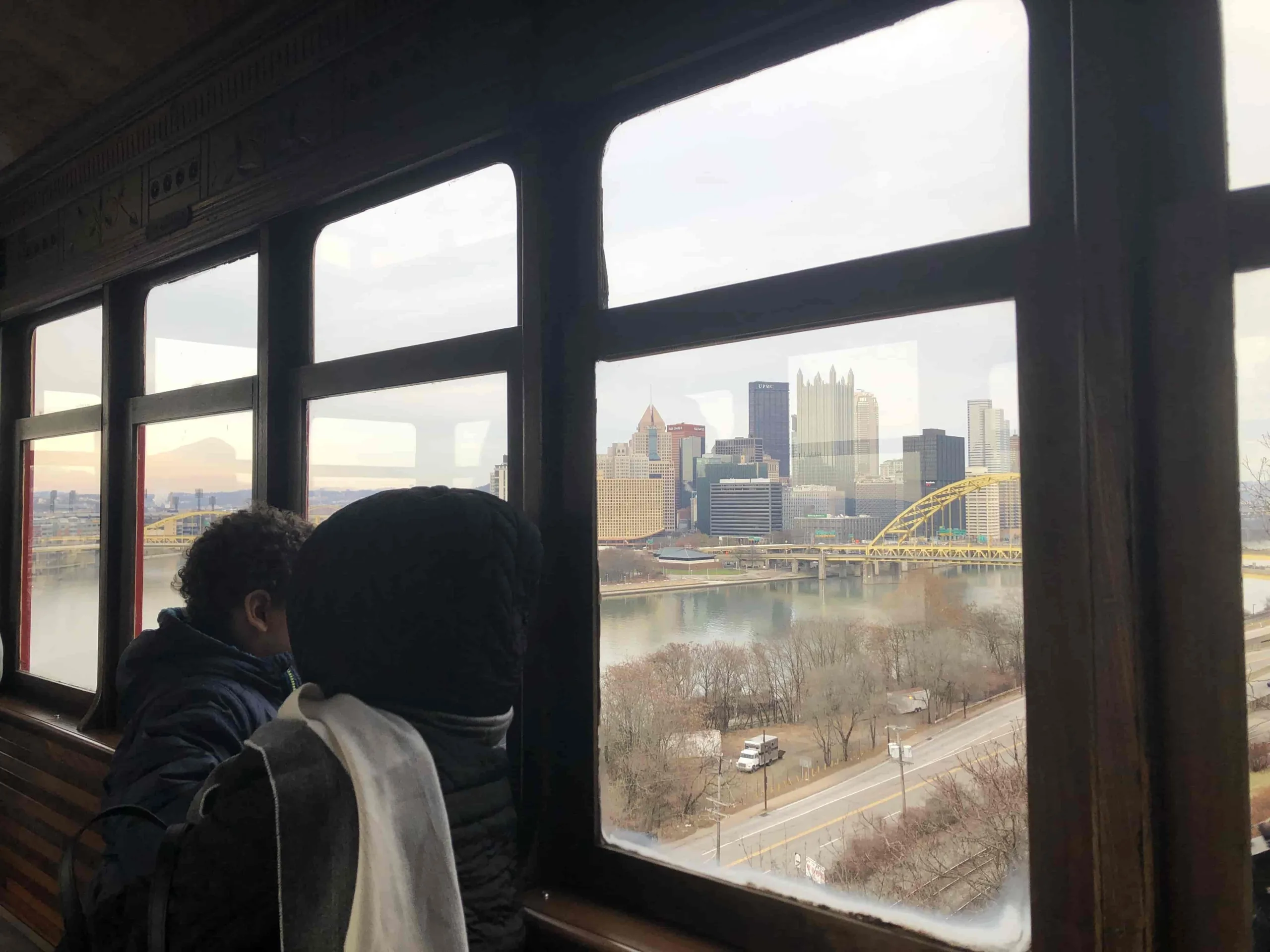Jump Ahead To:
Pittsburgh’s demographic landscape is a fascinating mosaic that reflects its rich history and its dynamic evolution into a modern urban center. Known for its blue-collar roots and industrial past, Pittsburgh, known as the “Steel City,” has transformed dramatically over the last few decades, attracting a diverse population that includes students, professionals, artists, and a growing number of high net worth individuals.
Today’s Pittsburgh still proudly embraces its gritty, industrial past, but is now also acclaimed for its livable communities, cutting-edge tech scene, healthcare industry, educational institutions which have all contributed to a more affluent and varied demographic. The city’s universities, such as Carnegie Mellon and the University of Pittsburgh, not only draw in a young, vibrant student population but also attract faculty and professionals from around the world, adding to the city’s cultural diversity and economic vitality.
What’s Happening in Pittsburgh? Culture and Quality of Life
The city’s cultural scene is robust, with world-class institutions like the Carnegie Museums, the Pittsburgh Symphony Orchestra, and a vibrant theater district. The culinary scene is equally impressive, featuring a mix of high-end dining establishments and innovative eateries that reflect the city’s growing diversity and culinary sophistication. Moreover, Pittsburgh’s landscape, with its picturesque rivers, lush parks, and rolling hills, provides a beautiful backdrop and a plethora of outdoor activities, from boating on the rivers to hiking in the nearby Laurel Highlands.
The quality of life in Pittsburgh is further enhanced by its relatively low cost of living, especially when compared to other major cities with similar amenities. This economic advantage, combined with the city’s educational opportunities, cultural richness, and the friendly, community-oriented nature of its residents, creates a compelling proposition for high net worth individuals seeking a balanced and enriching lifestyle. Whether it’s investing in the vibrant downtown area, enjoying the tranquility of its upscale suburbs, or engaging with the city’s array of cultural and recreational activities, Pittsburgh offers a unique and attractive setting for affluent residents to call home.

Pittsburgh’s Economy
Pittsburgh’s economy has undergone a significant transformation from its historic roots in steel and heavy industry to a modern, diversified economic landscape.
One of the most notable aspects of Pittsburgh’s contemporary economy is its burgeoning tech sector. The city has become a hub for innovation, particularly in fields like robotics, artificial intelligence, and biomedical technology. Institutions like Carnegie Mellon University and the University of Pittsburgh play pivotal roles in this sector, driving research and attracting tech companies to the area. Google, Uber, and Facebook, among others, have established significant presences in Pittsburgh, drawn by the city’s talent pool and innovative ecosystem.
Pittsburgh’s economy is also heavily anchored in the education and healthcare sectors. The city’s hospitals, particularly those associated with the University of Pittsburgh Medical Center (UPMC), are recognized nationally and internationally for their quality of care and research. These institutions not only provide healthcare services but also are major employers and contributors to the local economy. The education sector, with numerous universities and colleges, adds to the city’s economic stability and attracts a young, dynamic workforce.
The city’s economic landscape includes a robust finance and professional services sector. Pittsburgh is home to major financial institutions and a growing number of startups and small businesses, contributing to a diversified and resilient economy.
And while the steel industry no longer dominates, manufacturing remains a vital part of Pittsburgh’s economy, though now it’s more focused on high-tech and advanced manufacturing. Additionally, the region’s energy sector, including natural gas and renewable energy sources, plays a significant role in the local economy, driven by the Marcellus Shale gas reserves.
Pittsburgh’s economy is a reflection of the city’s ability to adapt and innovate. Moving from an industrial powerhouse to a leader in technology and healthcare, the city has demonstrated a remarkable capacity for reinvention. This economic diversity not only makes Pittsburgh an attractive place for businesses and investors but also provides a high quality of life for its residents, making it a model of urban transformation in the 21st century.
Pittsburgh’s Six Wealthiest Neighborhoods
1: Fox Chapel
An exclusive suburb of Pittsburgh, Fox Chapel is synonymous with luxury and seclusion. Known for its sprawling estates and lush landscapes, this neighborhood offers a serene escape from the urban hustle while maintaining close proximity to the city’s amenities. Fox Chapel’s residents enjoy a high standard of living, with access to elite country clubs, private schools, and recreational facilities. The area’s commitment to preserving natural beauty, combined with its opulent homes, makes Fox Chapel a haven for the affluent who cherish privacy and outdoor leisure. The median sale price of a home in Fox Chapel is $1.2M.
2: Mount Lebanon
With its well-kept homes, vibrant community life, charming downtown and top-tier Pittsburgh public schools, Mount Lebanon is offers a laid-back approach to affluent living. The heart of Mount Lebanon is its Uptown business district, which is not only a hub for shopping and dining but also the epicenter for many community events. Throughout the year, Uptown hosts a variety of activities, including farmers’ markets, art festivals, and holiday parades (don’t miss its Fourth of July celebration!). The neighborhood’s appealing blend of family-friendly amenities and upscale living makes it an attractive destination for those seeking a prosperous yet community-oriented lifestyle. The median sale price of a home in Mount Lebanon is $340K.
3: O’Hara Township
With its serene residential areas and scenic parks, O’Hara Township is a favored locale for those desiring tranquility coupled with luxury. The neighborhood boasts a range of high-end homes, from modern constructions to classic estates, set amidst lush greenery and rolling hills. O’Hara Township’s appeal lies in its peaceful environment, excellent schools, and convenient access to Pittsburgh’s business and cultural centers. This neighborhood offers an idyllic setting for affluent families and individuals who prioritize space, nature, and a high standard of living. Median sale price of a home in Sewickley is $255K.
4: Shadyside
Known for its elegant Victorian mansions and tree-lined streets, Shadyside epitomizes the grace and charm of Pittsburgh’s wealthier enclaves. This neighborhood, nestled conveniently between the University of Pittsburgh and Carnegie Mellon University, is a blend of academic vibrancy and upscale living. Walnut Street, Shadyside’s bustling commercial artery, offers a plethora of high-end boutiques, gourmet restaurants, and art galleries, catering to the sophisticated tastes of its residents. The harmonious blend of historic charm and modern amenities makes Shadyside a coveted address for those seeking an urbane lifestyle in a picturesque setting. The median sale price of a home in Shadyside is $380K.
5: Sewickley
Sitting along the Ohio River, Sewickley combines small-town charm with upscale allure. This neighborhood is characterized by its historic homes, quaint downtown area, and tight-knit community spirit. Sewickley’s residents enjoy a high quality of life, with access to boutique shopping, gourmet dining, and cultural events, all within a picturesque and walkable setting. The neighborhood’s proximity to Pittsburgh, coupled with its tranquil, village-like ambiance, offers the best of both worlds for those seeking sophistication without the urban intensity. Median sale price of a home in Sewickley is $254K.
6: Squirrel Hill
A sprawling neighborhood known for its diverse community and affluent ambiance, Squirrel Hill stands as a testament to Pittsburgh’s cultural richness. The area’s spacious homes and manicured lawns speak to its residents’ appreciation for elegance and comfort. With a variety of parks, top-rated schools, and a wealth of cultural institutions, Squirrel Hill offers a balanced and refined living experience. Its vibrant commercial districts, Murray and Forbes Avenue, provide an array of dining and shopping options that cater to the discerning tastes of its inhabitants. Squirrel Hill’s blend of residential tranquility and urban convenience makes it a prime choice for those seeking a distinguished and dynamic living environment. The median sale price of a home in Squirrel Hill South is $450K, in Squirrel Hill North its $960K
Moving to Pittsburgh?
Pittsburgh’s wealthiest neighborhoods, each with its own unique charm and character, offer a glimpse into the city’s luxurious side and the diverse preferences and lifestyles of Pittsburgh’s affluent residents. In these neighborhoods, luxury is not just about opulent homes and exclusive amenities; it’s about a quality of life that blends comfort, community, and convenience in one of America’s most dynamic cities.
If you’re planning a move to Pittsburgh, get in touch with us. We’re Bellhop, and we are dedicated to making your relocation as stress free as possible.
From long distance to local moves, full-service and special project hourly rates, storage services and last minute moves – we do it all. Use our moving cost calculator to get a quick view of the approximate costs, or just go right ahead and book your Bellhop move. Questions? We have answers and we’re always happy to talk to you.
(PS: even if you’re not moving to one of Pittsburgh’s most expensive neighborhoods, you can still expect the best moving service from Bellhop!)
Other Pittsburgh Guides
- Moving to Pittsburgh, PA: A Bellhop City Guide
- The 5 Best Neighborhoods for Families in Pittsburgh
- The Best Places to Live in Pennsylvania
- Is Moving to Pennsylvania Right for You
- Best Schools in Pittsburgh
- How Much Does It Cost to Live in Pittsburgh?
- Most Walkable Neighborhoods in Richmond - May 21, 2024
- Best Schools in Omaha, Nebraska: A Comprehensive Guide - May 9, 2024
- The Best Schools in Tucson, Arizona - April 5, 2024



